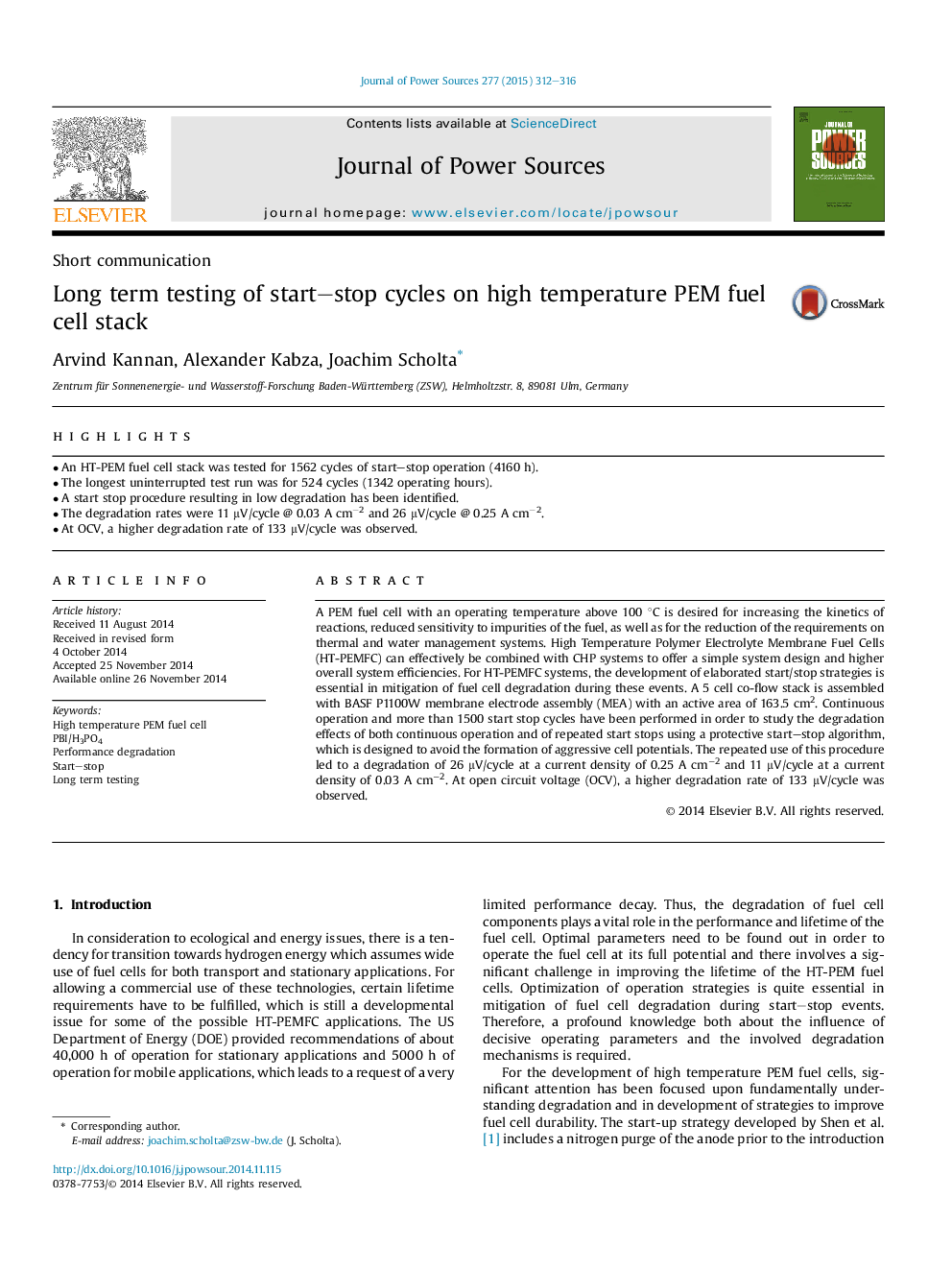| کد مقاله | کد نشریه | سال انتشار | مقاله انگلیسی | نسخه تمام متن |
|---|---|---|---|---|
| 1286801 | 1497955 | 2015 | 5 صفحه PDF | دانلود رایگان |

• An HT-PEM fuel cell stack was tested for 1562 cycles of start–stop operation (4160 h).
• The longest uninterrupted test run was for 524 cycles (1342 operating hours).
• A start stop procedure resulting in low degradation has been identified.
• The degradation rates were 11 μV/cycle @ 0.03 A cm−2 and 26 μV/cycle @ 0.25 A cm−2.
• At OCV, a higher degradation rate of 133 μV/cycle was observed.
A PEM fuel cell with an operating temperature above 100 °C is desired for increasing the kinetics of reactions, reduced sensitivity to impurities of the fuel, as well as for the reduction of the requirements on thermal and water management systems. High Temperature Polymer Electrolyte Membrane Fuel Cells (HT-PEMFC) can effectively be combined with CHP systems to offer a simple system design and higher overall system efficiencies. For HT-PEMFC systems, the development of elaborated start/stop strategies is essential in mitigation of fuel cell degradation during these events. A 5 cell co-flow stack is assembled with BASF P1100W membrane electrode assembly (MEA) with an active area of 163.5 cm2. Continuous operation and more than 1500 start stop cycles have been performed in order to study the degradation effects of both continuous operation and of repeated start stops using a protective start–stop algorithm, which is designed to avoid the formation of aggressive cell potentials. The repeated use of this procedure led to a degradation of 26 μV/cycle at a current density of 0.25 A cm−2 and 11 μV/cycle at a current density of 0.03 A cm−2. At open circuit voltage (OCV), a higher degradation rate of 133 μV/cycle was observed.
Journal: Journal of Power Sources - Volume 277, 1 March 2015, Pages 312–316